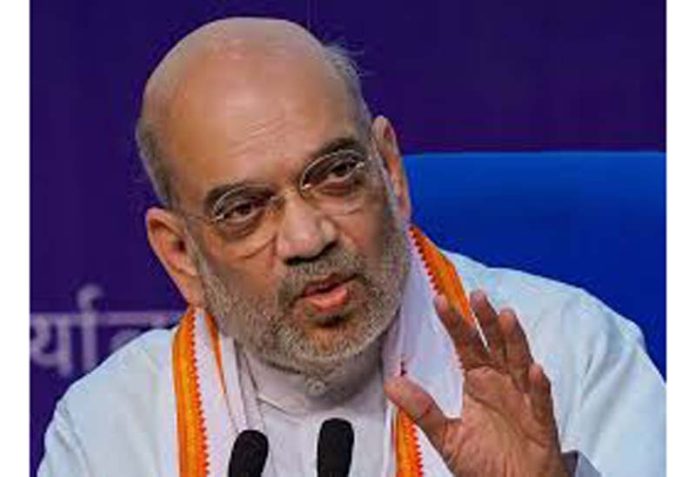NEW DELHI, July 18: Union Home Minister Amit Shah today said India is working on a system that will not allow “even a gram” of drugs to come into the country or trafficked abroad, as he exhorted anti-narcotics agencies to adopt a “ruthless” approach to dismantle supply chains.
Follow the Daily Excelsior channel on WhatsApp
He was addressing senior officials of the central and state anti-narcotics agencies during the 7th apex-level meeting of NCORD, or narco-coordination centre, in the national capital.
Shah also launched the MANAS helpline number ‘1933’ along with an email ID — info.Ncbmanas@gov.In.
These can be used by people to give information about drug trafficking to the Narcotics Control Bureau (NCB). Information can also be submitted on ncbmanas.Gov.In.
“The entire drug business is now linked with narco-terror, and the money generated from the drug trade has become the most serious threat to the country’s security. The goal of all agencies should not only be to nab drug users but also to bust the entire network,” Shah said.
He added that his government “will not let even a gram of drugs come into India, nor will we allow such a quantity to be trafficked abroad…”.
“There should be a ruthless approach towards the drug supply chain, a strategic approach towards demand reduction and a human approach for harm reduction,” he said during the meeting at the Vigyan Bhawan here.
He said the anti-narcotics agencies have seized three times more drugs during the Modi government years of 2014-24 as compared to the last comparable decade of 2004-13.
“About 5.43 lakh kg drugs valued at about Rs 22,000 crore were seized during our government’s tenure as compared to 1.52 lakh kg narcotics worth Rs 5,933 crore seized during 2004-13,” he said.
Shah said narco-terror business and the proceeds generated through this crime was the “most serious threat” to India’s security.
The Home Minister said India was at a crucial juncture when it came to the fight against drugs as he rejected the policy undertaken by some western countries to decriminalise certain narcotics offences.
“I have done a deep analysis of these instances (western countries decriminalising certain drug offences) but the reason behind this is not humanitarian or a liberal or lenient approach.
“The fact is their (western countries) jails do not have capacity to keep everyone incarcerated…Doing this is a compulsion for these countries,” he said.
The Home Minister stressed that agencies use both the “top to bottom and bottom to top approaches” to dismantle drug supply chains.
Shah said if a drug comes into the country through a land, water or airport, it should be tracked and checked till the last point where it is trafficked to.
The Home Minister said in the last five years, the Narendra Modi government has based its anti-drugs battle on the whole-of-government approach and structural, institutional and informational reforms, the last one being spreading awareness about the ills of drugs.
Earlier, the mantra of the agencies was “need to know” but now they should move towards the functionality of “duty to share”, and all agencies need to adopt this significant change, Shah said.
“The Government will soon provide less costly kits for the preliminary testing of narcotics, which will make it much easier to register cases by all the agencies,” he said.
Shah said Prime Minister Modi has set the goal for India to be foremost in every field by 2047 and this can only be achieved by keeping the younger generation away from the scourge of drugs.
He reiterated his earlier declared point that the target of anti-narcotics agencies should not be the users of drugs but the traders and traffickers.
He said multi-agency platforms like NCORD should be “outcome based and result-oriented” as this battle was a “serious” task.
Shah also released the NCB’s ‘Annual Report 2023’ and a compendium on ‘Drug-Free India’ during the meeting. (PTI)


